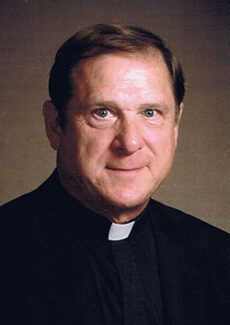Called to share in faithfulness of Christ

Father R. Michael Schaab
Living the Word l Father R. Michael Schaab
Fourth Sunday of Advent l Dec. 18
Isaiah 7:10-14; Psalm 24:1-2,3-4,5-6; Romans 1:1-7; Matthew 1:18-24
There are two messages in the readings, one about Jesus and one about ourselves. The first message is found in the reading from Isaiah and in the Gospel. The second message is found in the Responsorial Psalm and the reading from Romans.
We, too, are called to be faithful and to receive “grace and peace.” In order for this to happen the Responsorial Psalm calls us to “let the Lord enter,” for once the Lord has entered our hearts his faithfulness becomes our faithfulness.
Isaiah, as prophet, spoke for God. He assured Ahaz that the king need not make any political alliance. All he needed to do was to trust in God and follow God’s commands. In doing so, the Kingdom of Judah would have God’s protection. While paying lip service to the words of the prophet, Ahaz chose to make an alliance with the Assyrians anyway, because he really didn’t believe that God would protect his kingdom. This decision was a disaster for the religious life of his kingdom.
That’s where today’s first reading picks up the narrative. God offers to give a sign to convince Ahaz that God has the power to protect his kingdom. Ahaz doesn’t want a sign. His mind is already made up. He’s throwing in his lot with the Assyrians, and that’s when an exasperated Isaiah informs Ahaz that God, therefore, chooses his own sign and it is this: a virgin will have a son named Emmanuel.
“LET THE LORD ENTER”
And that brings us to the Gospel. Matthew’s account of the birth of Jesus Christ is the fulfillment of Isaiah’s 700-year-old prophecy. “The virgin shall conceive and bear a son, and they shall name him Emmanuel, which means ‘God is with us.’” This name of Jesus, which is used only once in the New Testament, is very important for Matthew. He makes reference to this meaning of Emmanuel in the very last sentence of his Gospel: “I am with you always until the end of the age.”
God’s power had been promised to the unfaithful King Ahaz who rejected it. That same power, called the Holy Spirit, now comes to Jesus Christ, the New and Eternal King.
The first message, that the power of God came to Jesus who was faithful, becomes the model for the second message in today’s Scriptures.
The second reading is a long salutation from the beginning of the Letter to the Romans. It makes reference to the Scriptures, to prophets, to the power of God and to King David — all things we heard from the prophet Isaiah. But then it makes a huge leap. “You also . . . are called to belong to Jesus Christ.” The result of this is that we, too, are called to be faithful and to receive “grace and peace.” In order for this to happen the Responsorial Psalm calls us to “let the Lord enter,” for once the Lord has entered our hearts his faithfulness becomes our faithfulness.
So, the second message is that the power of God comes now to us as we share in the faithfulness of Christ.
This greeting from Romans, “Grace to you and peace from God our Father and the Lord Jesus Christ,” is a favorite of St. Paul. He uses it in eight of his New Testament letters. It’s also an option for a greeting at Mass, and a very appropriate one for this Advent season.
—
FATHER R. MICHAEL SCHAAB is a senior priest of the Diocese of Peoria who gives retreats and days of recollection, and fills in as presider at parish Masses on weekends. He resides on a hobby farm in Putnam County.





